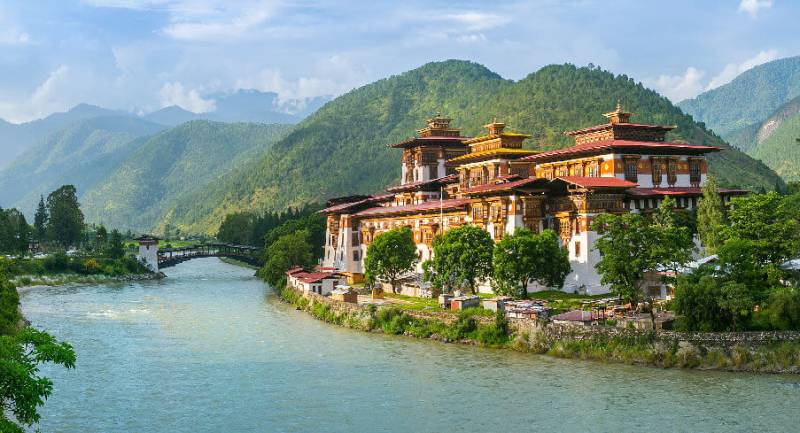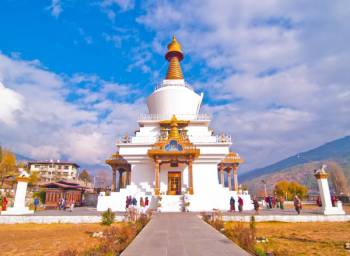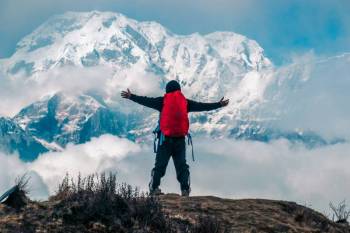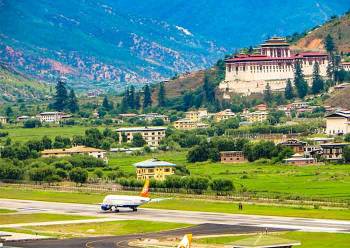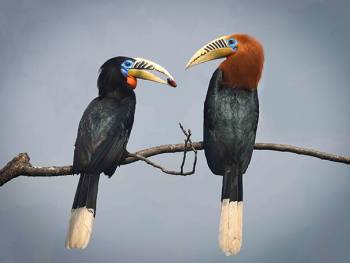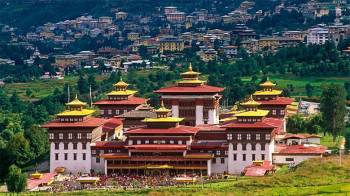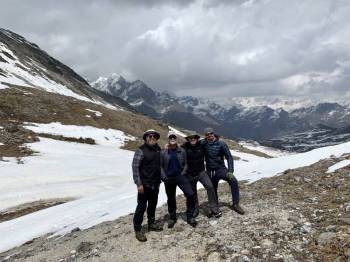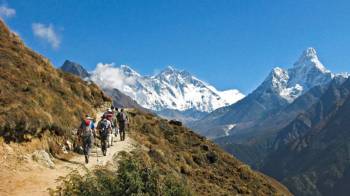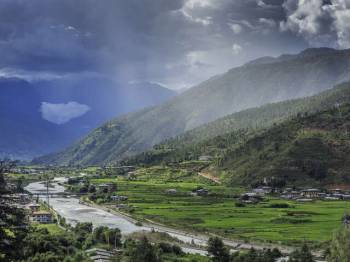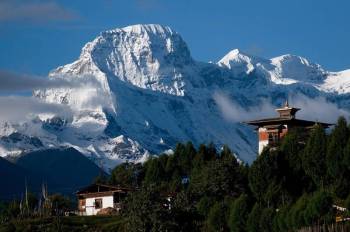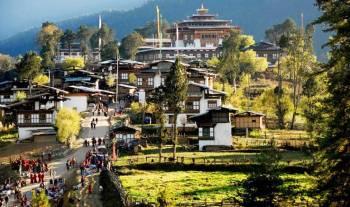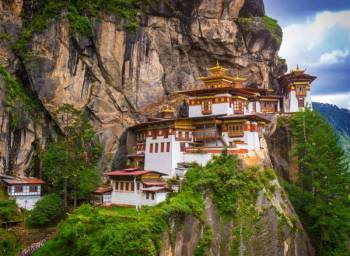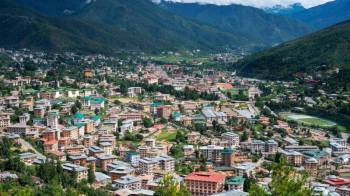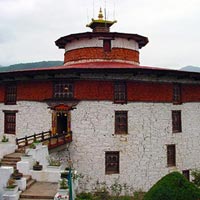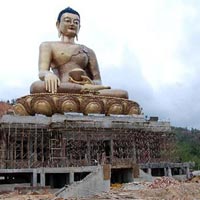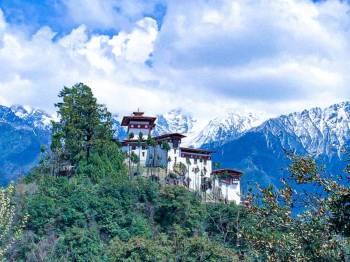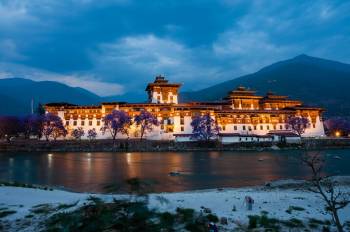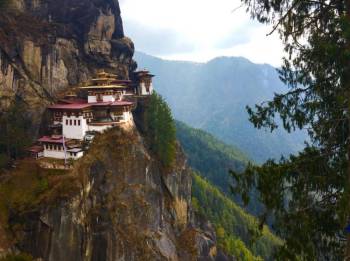6 Days Know Bhutan Tour
Link Copied
Duration : 5 Nights / 6 Days
Destination Covered : Paro, Punakha
Tour Activities : Museums
Tour Themes : Hill Stations & Valleys, Religious & Pilgrimage, Culture & Heritage
Price on Request
Paro and Punakha Tour Overview
Arrival / Departure
Arrival: Paro International Airport
Departure: Paro International Airport
Paro and Punakha Tour Itinerary
Day 1
Elevation 2,280 m
Welcome to Bhutan, the Land of the Thunder Dragon. Touching down at Paro International Airport, you will be greeted by your guide upon exiting the arrival hall. Today, we will take it easy to acclimatise to the altitude. Drive to Thimphu.
Tachog Lhakhang: On the way, halt at Tachog Lhakhang (Bhutan first Iron Bridge) for sightseeing and photography. Upon reaching Thimphu, check in to the hotel and let’s have your first taste of Bhutanese cuisine and some light sightseeing in Thimphu if possible.
Folk Heritage Museum: Dedicated to connecting people to the Bhutanese rural past though exhibition of artifacts used in rural households.
National Memorial Chorten: The Memorial Stupa, Thimphu, also known as the Thimphu Chorten, is a stupa (Dzongkha chöten, cheten) in Thimphu, Bhutan. The stupa, built in 1974 to honor the third Druk Gyalpo, Jigme Dorji Wangchuck (1928–1972), is a prominent landmark in the city with its golden spires and bells.
Thimphu Dzong (Tashicho Dzong) Night View: Located at the capital city of Bhutan, The Tashichho Dzong is the office of the King of Bhutan. It also serves as the office of the Central Monastic Body. It houses hundreds of monks and holy stupas. Visit to this dzong is open after 5 PM. The Night view of the dzong is marvelous.
Welcome to Bhutan, the Land of the Thunder Dragon. Touching down at Paro International Airport, you will be greeted by your guide upon exiting the arrival hall. Today, we will take it easy to acclimatise to the altitude. Drive to Thimphu.
Tachog Lhakhang: On the way, halt at Tachog Lhakhang (Bhutan first Iron Bridge) for sightseeing and photography. Upon reaching Thimphu, check in to the hotel and let’s have your first taste of Bhutanese cuisine and some light sightseeing in Thimphu if possible.
Folk Heritage Museum: Dedicated to connecting people to the Bhutanese rural past though exhibition of artifacts used in rural households.
National Memorial Chorten: The Memorial Stupa, Thimphu, also known as the Thimphu Chorten, is a stupa (Dzongkha chöten, cheten) in Thimphu, Bhutan. The stupa, built in 1974 to honor the third Druk Gyalpo, Jigme Dorji Wangchuck (1928–1972), is a prominent landmark in the city with its golden spires and bells.
Thimphu Dzong (Tashicho Dzong) Night View: Located at the capital city of Bhutan, The Tashichho Dzong is the office of the King of Bhutan. It also serves as the office of the Central Monastic Body. It houses hundreds of monks and holy stupas. Visit to this dzong is open after 5 PM. The Night view of the dzong is marvelous.
Day 2
Thimphu was established as the modern Capital of Bhutan only in 1965. It is only one of two capitals in the world that does not have traffic lights. As one of the unique capital in the world, Thimphu has beautiful balance of pristine natural environment, cultural heritage and modern development.
After breakfast we will go to for money exchange (if required) in the Bank and then we will commence tour of Thimphu. We will then visit places of interest that are as listed below as time permits:
Simthokha Dzong: The Simtoka Dzong, built in 1629 by Zhabdrung Ngawang Namgyal, functions as a monastic and administrative center and is the oldest dzong which has survived in its original form.
National Library: The National Library was established in the late 1960s and it houses an extensive collection of Buddhist literature mostly in block-printed format and some works are several hundred years old. There is also a small collection of books in English on the ground floor mainly on Buddhism, Bhutan, the Himalayan region and neighboring countries.
The Textile Museum: These museums, both of which opened in 2001, provide fascinating insights into Bhutanese material culture and way of life and is a ‘must see’ when in Thimphu.
Simply Bhutan: Simply Bhutan is a living museumand photo studio that gives a good guided introduction to various aspects of Bhutanese traditional lives and the project is aimed at preservation and promotion of cultural. It was established in the year 2010. The objective is to raise fund to support Youth Development Fund in conducting various youth related programs, now and in future. Visitors are greeted with a shot of local arra (rice spirit), before being guided through mocked-up village scenes. Along the way, you can dress up in traditional clothes, try out archery and hear songs sung by Bhutanese women as they build houses out of rammed earth. It’s touristy, but a good family experience. There are also souvenir stalls, and a restaurant serving best Bhutanese set meals.
National Institute for Zorig Chusum: This institute, commonly known as ‘the painting school’, operates four- to six-year courses that provide instruction in Bhutan’s 13 traditional arts. Students specialise in painting (of both furniture and thangkas – painted religious pictures, usually on canvas), woodcarving (masks, statues, bowls), embroidery (hangings, boots, clothes) or statue-making (clay). Students are well used to having visitors while they work and it’s fine to take photos.
Mini Zoo: This Zoo houses the National Animal of Bhutan – the “Takin “. It’s worthwhile taking the time to see these strange, quite unique animals.
Craft Bazar/ Mark: A one stop place to witness Bhutanese culture and buy Bhutan made arts and crafts product. The Bazar has approximately 80 stalls covering all aspects of the traditional arts and crafts of Bhutan. At this Bazzar, craftsmen and artisans from across the county display and sell their handicrafts.
After breakfast we will go to for money exchange (if required) in the Bank and then we will commence tour of Thimphu. We will then visit places of interest that are as listed below as time permits:
Simthokha Dzong: The Simtoka Dzong, built in 1629 by Zhabdrung Ngawang Namgyal, functions as a monastic and administrative center and is the oldest dzong which has survived in its original form.
National Library: The National Library was established in the late 1960s and it houses an extensive collection of Buddhist literature mostly in block-printed format and some works are several hundred years old. There is also a small collection of books in English on the ground floor mainly on Buddhism, Bhutan, the Himalayan region and neighboring countries.
The Textile Museum: These museums, both of which opened in 2001, provide fascinating insights into Bhutanese material culture and way of life and is a ‘must see’ when in Thimphu.
Simply Bhutan: Simply Bhutan is a living museumand photo studio that gives a good guided introduction to various aspects of Bhutanese traditional lives and the project is aimed at preservation and promotion of cultural. It was established in the year 2010. The objective is to raise fund to support Youth Development Fund in conducting various youth related programs, now and in future. Visitors are greeted with a shot of local arra (rice spirit), before being guided through mocked-up village scenes. Along the way, you can dress up in traditional clothes, try out archery and hear songs sung by Bhutanese women as they build houses out of rammed earth. It’s touristy, but a good family experience. There are also souvenir stalls, and a restaurant serving best Bhutanese set meals.
National Institute for Zorig Chusum: This institute, commonly known as ‘the painting school’, operates four- to six-year courses that provide instruction in Bhutan’s 13 traditional arts. Students specialise in painting (of both furniture and thangkas – painted religious pictures, usually on canvas), woodcarving (masks, statues, bowls), embroidery (hangings, boots, clothes) or statue-making (clay). Students are well used to having visitors while they work and it’s fine to take photos.
Mini Zoo: This Zoo houses the National Animal of Bhutan – the “Takin “. It’s worthwhile taking the time to see these strange, quite unique animals.
Craft Bazar/ Mark: A one stop place to witness Bhutanese culture and buy Bhutan made arts and crafts product. The Bazar has approximately 80 stalls covering all aspects of the traditional arts and crafts of Bhutan. At this Bazzar, craftsmen and artisans from across the county display and sell their handicrafts.
Day 3
Elevation 3,000 m
After breakfast, leave Thimphu and begin your journey east, toward Punakha. The journey takes you on mountain roads, with spectacular alpine scenery. The drive will go over the Dochu La Pass at 3,050 m where on a clear day you can see Eastern western Himalayas of Bhutan.
Dochu-la Pass: We will stop at Dochu-la Pass, here we see 108 chortens built by the present Queen mother of Bhutan Ashi Dorji Wangmo Wangchuk to commemorate Bhutan’s victory over Indian militants and to liberate the souls of people who lost their lives. Continue through the bustling market town of Wangduephodrang, and up winding mountain roads through mixed forests and over high passes before ascending into the wide and picturesque Phobjikha Valley. Phobjikha is one of Bhutan’s few glacial valleys, and chosen winter home of black necked cranes (November – March) migrating from the Tibetan plateau. Upon reaching Phubjikha, walk around the valley and visit crane center & Gantay Monastery.
On the way to Paro, halt at Chimmi Lhakhang – a 20 minutes-walk across terraced fields through the village of Sopsokha from the roadside to the small temple located on a hillock in the Centre of the valley below Metshina. Ngawang Chogyel built the temple in 15th century after the ’divine Madman’ Drukpa Kuenlay built a small chorten there. It is a pilgrim site for barren women.
Upon reaching Punakha, visit following places:
Punakha fort (Dzong): which was old Capital of Bhutan and observe the stunning view and beauty of the fort.
Punakha Suspension Bridge: This bridge is one of the longest bridges in Bhutan which conntects People form Shengana, Samdingkha, and Wangkha villages across the Tsang Chu River (aka Po Chu) to Punakha DzongThe bridge offers a spectacular view of the river and valley, and the east bank is a good starting point for multi-day treks in the nearby mountains.
After breakfast, leave Thimphu and begin your journey east, toward Punakha. The journey takes you on mountain roads, with spectacular alpine scenery. The drive will go over the Dochu La Pass at 3,050 m where on a clear day you can see Eastern western Himalayas of Bhutan.
Dochu-la Pass: We will stop at Dochu-la Pass, here we see 108 chortens built by the present Queen mother of Bhutan Ashi Dorji Wangmo Wangchuk to commemorate Bhutan’s victory over Indian militants and to liberate the souls of people who lost their lives. Continue through the bustling market town of Wangduephodrang, and up winding mountain roads through mixed forests and over high passes before ascending into the wide and picturesque Phobjikha Valley. Phobjikha is one of Bhutan’s few glacial valleys, and chosen winter home of black necked cranes (November – March) migrating from the Tibetan plateau. Upon reaching Phubjikha, walk around the valley and visit crane center & Gantay Monastery.
On the way to Paro, halt at Chimmi Lhakhang – a 20 minutes-walk across terraced fields through the village of Sopsokha from the roadside to the small temple located on a hillock in the Centre of the valley below Metshina. Ngawang Chogyel built the temple in 15th century after the ’divine Madman’ Drukpa Kuenlay built a small chorten there. It is a pilgrim site for barren women.
Upon reaching Punakha, visit following places:
Punakha fort (Dzong): which was old Capital of Bhutan and observe the stunning view and beauty of the fort.
Punakha Suspension Bridge: This bridge is one of the longest bridges in Bhutan which conntects People form Shengana, Samdingkha, and Wangkha villages across the Tsang Chu River (aka Po Chu) to Punakha DzongThe bridge offers a spectacular view of the river and valley, and the east bank is a good starting point for multi-day treks in the nearby mountains.
Day 4
Paro Valley: The beautiful valley is home to many of Bhutan’s old monasteries and temples. The country’s only Airport is in Paro. The valley is also home to mount Chomolhari (7,300 meters) situated at the northern end of the valley whose glacier water forms the Pachu flowing through the valley. The following are some of the prominent places to visit in Paro.
Paro Dzong: This Dzong was built in 1644 by Shabdrung Ngawang Namgyal and today houses a Monastic school, the office of the local governor and few government offices. If you like, you can take a short walk downhill crossing a traditional cantilever bridge over the Pa-chu (Paro River) will take you to the base of the hill.
Ta Dzong/ National Museum: Built as a watchtower the Ta Dzong has since been turned into the national museum.
Paro Dzong: This Dzong was built in 1644 by Shabdrung Ngawang Namgyal and today houses a Monastic school, the office of the local governor and few government offices. If you like, you can take a short walk downhill crossing a traditional cantilever bridge over the Pa-chu (Paro River) will take you to the base of the hill.
Ta Dzong/ National Museum: Built as a watchtower the Ta Dzong has since been turned into the national museum.
Day 5
Elevation 2,280 m
After breakfast, drive to the north of the valley to the base of a hill and hike to the famous Taktsang monastery (Alt.3100m). Taktsang literally means –“Tiger’s nest”. This monastery was built in the 1600s and clings to a sheer rock cliff that plunges 900m above the valley. Legend has it that Guru Rinpoche, in the form of Dorji Drolo(Guru’s 8th manifestation) arrived at this site on the back of a flying tigress believed to be his consort, to subdue the eight evil spirits who were preventing the propagation on Buddhism in the area. This is must visit place and should not missed it.
After breakfast, drive to the north of the valley to the base of a hill and hike to the famous Taktsang monastery (Alt.3100m). Taktsang literally means –“Tiger’s nest”. This monastery was built in the 1600s and clings to a sheer rock cliff that plunges 900m above the valley. Legend has it that Guru Rinpoche, in the form of Dorji Drolo(Guru’s 8th manifestation) arrived at this site on the back of a flying tigress believed to be his consort, to subdue the eight evil spirits who were preventing the propagation on Buddhism in the area. This is must visit place and should not missed it.
Day 6
Elevation 2,280 m
We bid you farewell and hope to see you again.
We bid you farewell and hope to see you again.
More Details about Paro and Punakha Tour
Inclusions
- Hotel
- Sightseeing
- Sustainable Development Fee (SDF – USD. 100/- per night per head). This directly goes to the Government for free Health and Education for the citizens of Bhutan.
- Visa fee of USD. 40/- per head.
- Tourism Council of Bhutan (TCB) Certified and Experience English Speaking personal Guide.
- Accommodation at 3 Star hotel with Shared Double/Twin bed room.
- SUV comfortable Vehicle for the whole tour including pickup, sightseeing and drop off.
- An experience driver.
- 3 meals a day (Breakfast, Lunch and Dinner) at designated restaurants and hotels.
- Standard Travel Insurance (only Bhutan).
- Monuments/ forts/ Dzongs entry fee and road permits.
- Bottled Mineral Water (500 ml) per head per day in the vehicle.
- 1 Local Tourist SIM – Complementary.
- All local royalty, fees and taxes.
- Free full assistance before, during and after your Bhutan trip.
Exclusions
- Flight Fares (domestic & internationals). However, Bhutan sector flight can be arranged with us).
- Additional/Extra room supplement and room upgrade.
- Bank charges for payment transfers. Card payment charges are higher than wire transfer.
- Tips for the guide and driver.
- Alcoholic drink.
- Anything which is not mentioned under inclusion are not included in the cost.
- Cancelation as per TCB rules.
- Additional sightseeing or extra usage of vehicle, other than mentioned in the itinerary.
- Any cost arising due to natural calamities like, landslides, road blockage, political disturbances (strikes), etc (to be borne by the client, directly payable on the spot).
Payments Terms
- * 20% Advance Percentage of total booking amount
Cancellation & Refund Policy
- * Upon cancellation, refund will be made after deducting the Retention Amount.
Fill Enquiry Form Below

